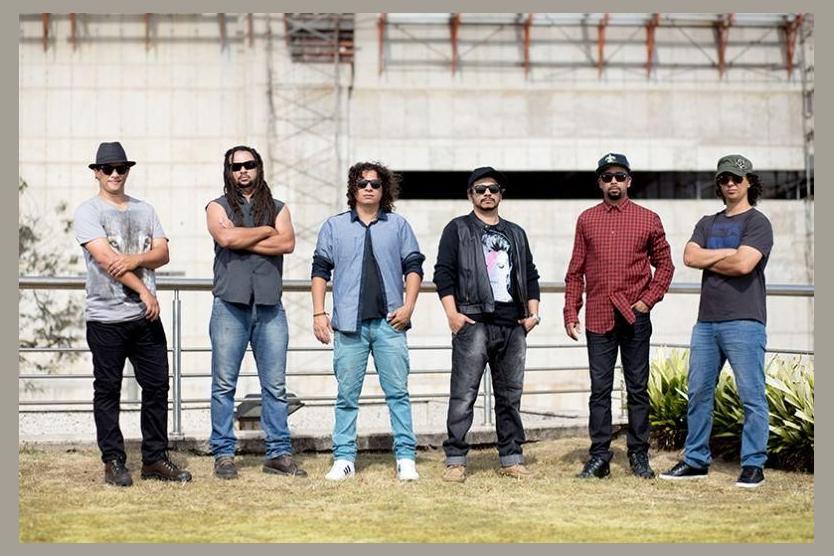 Herança Negra
Herança Negra
Herança Negra: A Chronicle of Afro-Brazilian Rhythms
Herança Negra, a pioneering Brazilian music group, emerged in the 1980s as a beacon of Afro-Brazilian culture on the global music scene. Their signature sound, a potent fusion of samba, funk, and reggae, reverberated with messages of social consciousness and racial pride.
Genesis and Members:
Herança Negra was founded in 1985 in the vibrant city of Rio de Janeiro. The original lineup comprised:
* Carlinhos Brown (vocals, percussion)
* Carlos Bobô (vocals)
* J.C. Silva (guitar)
* Lelei (bass)
* Jorjão (drums)
Together, they sought to amplify the voices of marginalized communities and celebrate the rich musical heritage of Brazil's African diaspora.
Artistic Challenges and Controversies:
Herança Negra's journey was not without its trials. The band's outspoken lyrics, which addressed themes of poverty, racism, and inequality, often ruffled feathers within the establishment. They faced censorship and criticism, but their unwavering commitment to social justice remained resolute.
Discography:
Throughout their illustrious career, Herança Negra released a series of critically acclaimed albums, including:
* "Herança Negra" (1986)
* "A Cena" (1987)
* "Brega Chic" (1989)
* "Carlinhos Brown & Herança Negra" (1993)
Legacy:
Herança Negra's groundbreaking music left an enduring mark on Brazilian popular culture and beyond. Their fusion of traditional and contemporary rhythms inspired countless artists and paved the way for a new generation of Afro-Brazilian musicians.
Anthem of Resistance: "A Cena"
"A Cena," released in 1987, became Herança Negra's signature anthem. Its powerful lyrics chronicled the daily struggles faced by black Brazilians, calling for unity and resistance against oppression. The song's iconic refrain, "A cena é a favela / Onde a gente vive" ("The scene is the favela / Where we live"), became a rallying cry for marginalized communities.
Conclusion:
Herança Negra's legacy as musical pioneers who used their art to fight for social justice continues to inspire musicians and activists alike. Their music remains a testament to the power of art as a catalyst for change and a celebration of the vibrant cultural diversity that enriches Brazil's soul.
Herança Negra, a pioneering Brazilian music group, emerged in the 1980s as a beacon of Afro-Brazilian culture on the global music scene. Their signature sound, a potent fusion of samba, funk, and reggae, reverberated with messages of social consciousness and racial pride.
Genesis and Members:
Herança Negra was founded in 1985 in the vibrant city of Rio de Janeiro. The original lineup comprised:
* Carlinhos Brown (vocals, percussion)
* Carlos Bobô (vocals)
* J.C. Silva (guitar)
* Lelei (bass)
* Jorjão (drums)
Together, they sought to amplify the voices of marginalized communities and celebrate the rich musical heritage of Brazil's African diaspora.
Artistic Challenges and Controversies:
Herança Negra's journey was not without its trials. The band's outspoken lyrics, which addressed themes of poverty, racism, and inequality, often ruffled feathers within the establishment. They faced censorship and criticism, but their unwavering commitment to social justice remained resolute.
Discography:
Throughout their illustrious career, Herança Negra released a series of critically acclaimed albums, including:
* "Herança Negra" (1986)
* "A Cena" (1987)
* "Brega Chic" (1989)
* "Carlinhos Brown & Herança Negra" (1993)
Legacy:
Herança Negra's groundbreaking music left an enduring mark on Brazilian popular culture and beyond. Their fusion of traditional and contemporary rhythms inspired countless artists and paved the way for a new generation of Afro-Brazilian musicians.
Anthem of Resistance: "A Cena"
"A Cena," released in 1987, became Herança Negra's signature anthem. Its powerful lyrics chronicled the daily struggles faced by black Brazilians, calling for unity and resistance against oppression. The song's iconic refrain, "A cena é a favela / Onde a gente vive" ("The scene is the favela / Where we live"), became a rallying cry for marginalized communities.
Conclusion:
Herança Negra's legacy as musical pioneers who used their art to fight for social justice continues to inspire musicians and activists alike. Their music remains a testament to the power of art as a catalyst for change and a celebration of the vibrant cultural diversity that enriches Brazil's soul.